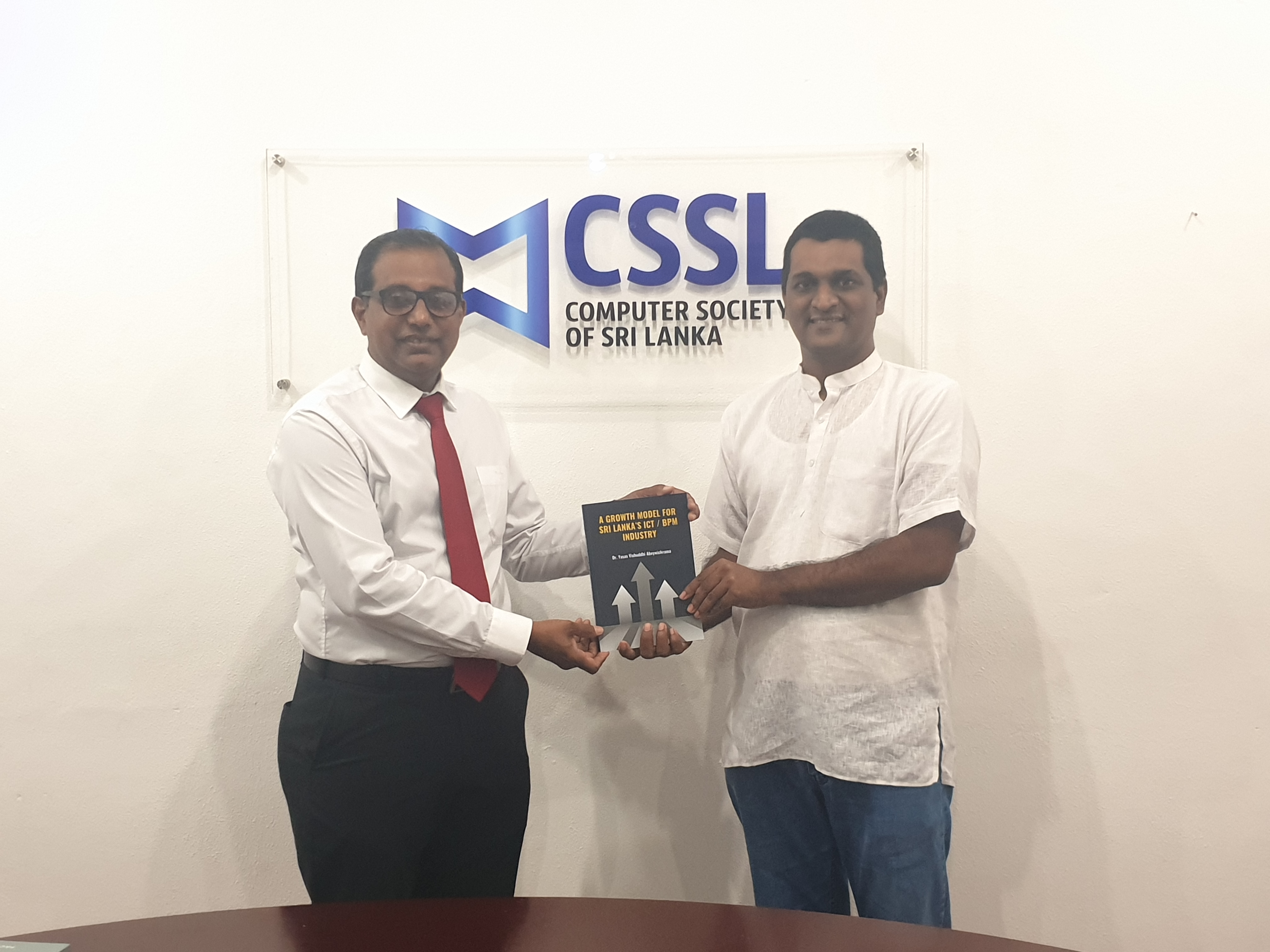Former CSSL President Dr Yasas Vishuddhi Abeywickrama presented his book, entitled ‘A Growth Model for the Sri Lankan ICT/BPM Industry’, to the current Computer Society of Sri Lanka (CSSL) President Eng. Damith Hettihewa at the CSSL Secretariat recently.
Dr Abeywickrama published his doctoral dissertation for the benefit of the industry and copies of his book will be available at the CSSL library for members to reference. He is also a past Board Member of IFIP (2015-2020) and former Chair of IFIP InterYIT Board (2014-2016).
The publication discusses growth challenges and develops a growth model for the knowledge industry focusing on export revenue aspects of the ICT and BPM sectors.
“ICT/BPM industry in the era of the 4th industrial revolution is a real opportunity for Sri Lanka to become a wealthy nation. Previous industrial revolutions created wealthy nations such as Europe, the Americas and Japan and we are yet to witness which country will grab the 4.0 opportunity,” said Mr Hettihewa.
“If Sri Lanka is to succeed, our policymakers need to act fast. The growth model developed by Dr Abeywickrama for his Doctor of Business Administration (DBA) research would be an important reference model for Sri Lankan policymakers to come up with policies and strategies to achieve the industry objective of making ICT/BPM the number 1 net foreign exchange earning industry,” he comments.
Sri Lanka has an immense potential to build itself as a destination for technology-based products and services. The research develops a national growth model for these sectors, which is articulated in the book.
This industry currently records the fifth highest foreign revenue for Sri Lanka and is one of the sectors where Sri Lanka has placed significant focus and attention from an economic growth point of view, since the end of the civil war. In 2016, a target was set to achieve $ 5 billion in revenues per year by 2022. However, by 2019, the country was not on track to achieve this. This has been revised in 2020 to achieve $ 3 billion by 2025. The newest target is also challenging.
In this context, there was a need over the past several years to identify factors affecting the growth and develop a researched model to help steer its growth. That was the purpose of this doctorate research. It is also a topic close to the researcher’s heart as a past President of CSSL in 2017 and 2018.
Key findings are that Sri Lanka has not been able to achieve expected growth in the sector due to various factors such as continued instability in the country, skills shortage, poor branding, weak sales networks overseas, an immature start-up ecosystem and issues related to ease of doing business. An overall lack of leadership and the non-existence of a monitoring process to achieve the previously set targets also have had a significant impact.
The key outcome of this exercise is a growth model for the Sri Lankan ICT/BPM industry. This is a key research milestone for this industry and academia. Such a broad academic research on this area has not been done in Sri Lanka regarding growth of ICT/BPM industry, and this fills that gap and provides the Government of Sri Lanka, industry bodies, the professional association, companies and professionals a basis and a guide as to how macro and micro strategies should be formulated in order to achieve the set industry goals. The book proposes an execution model to take the sector forward and the findings have also been published in international academic journals.






